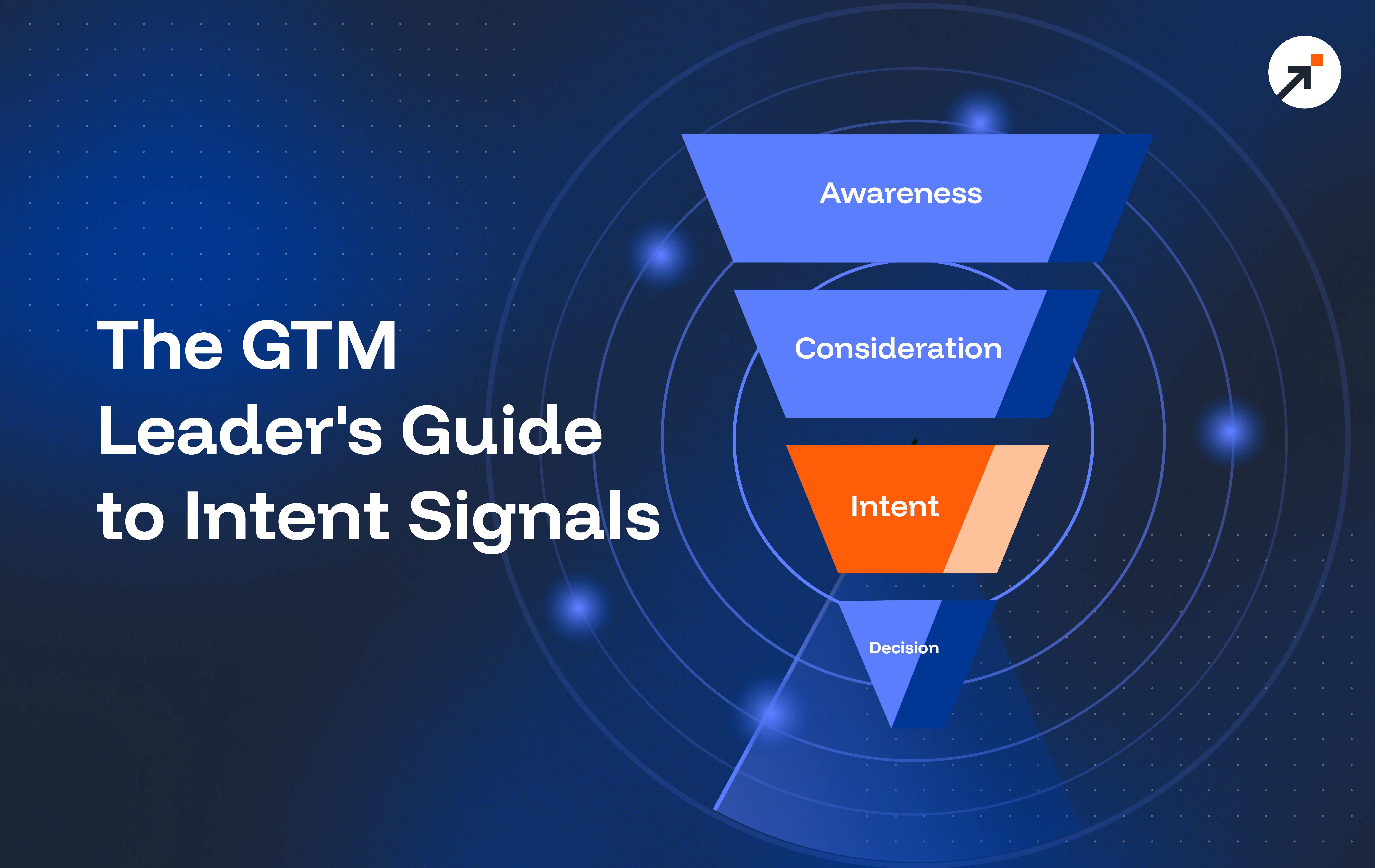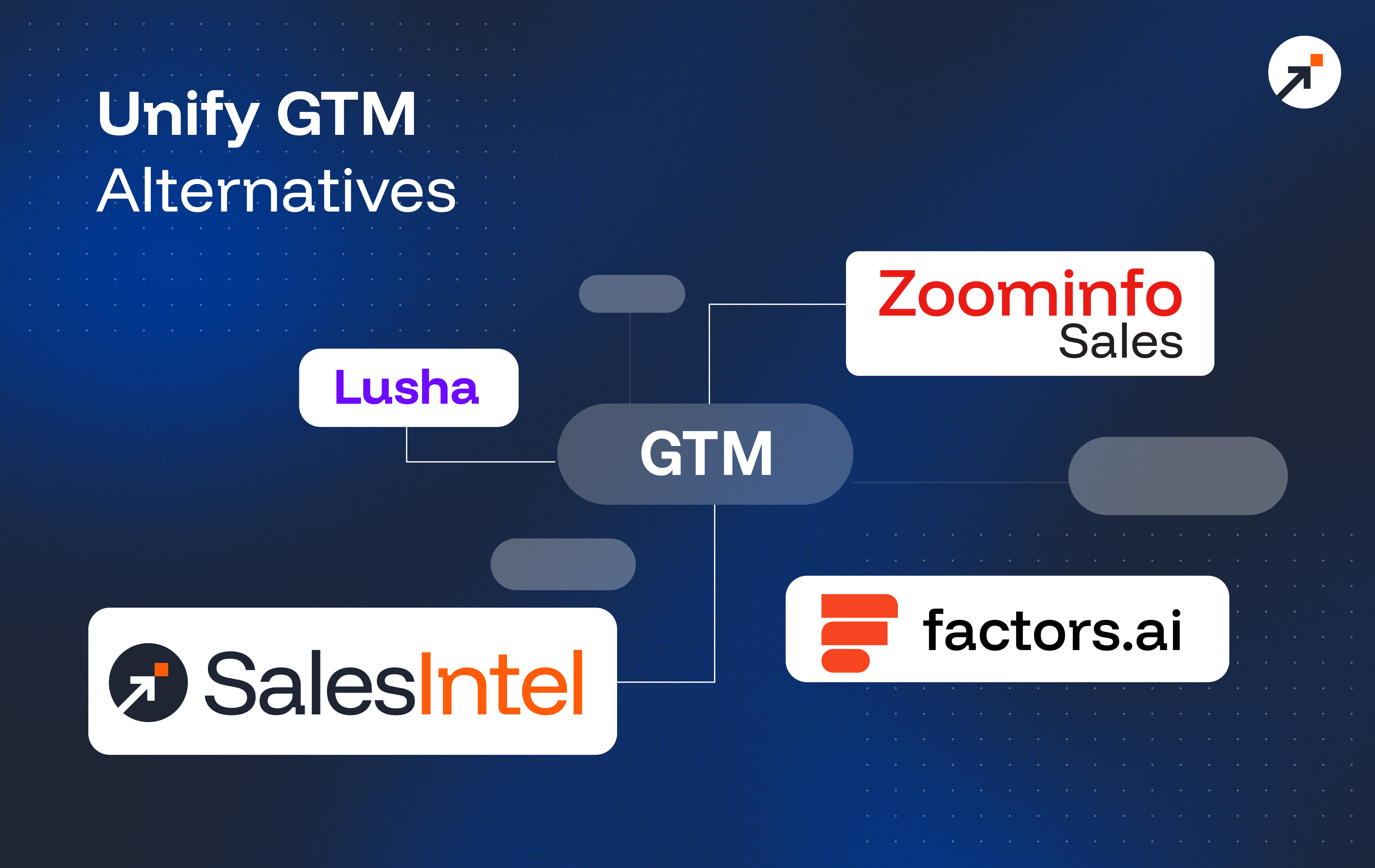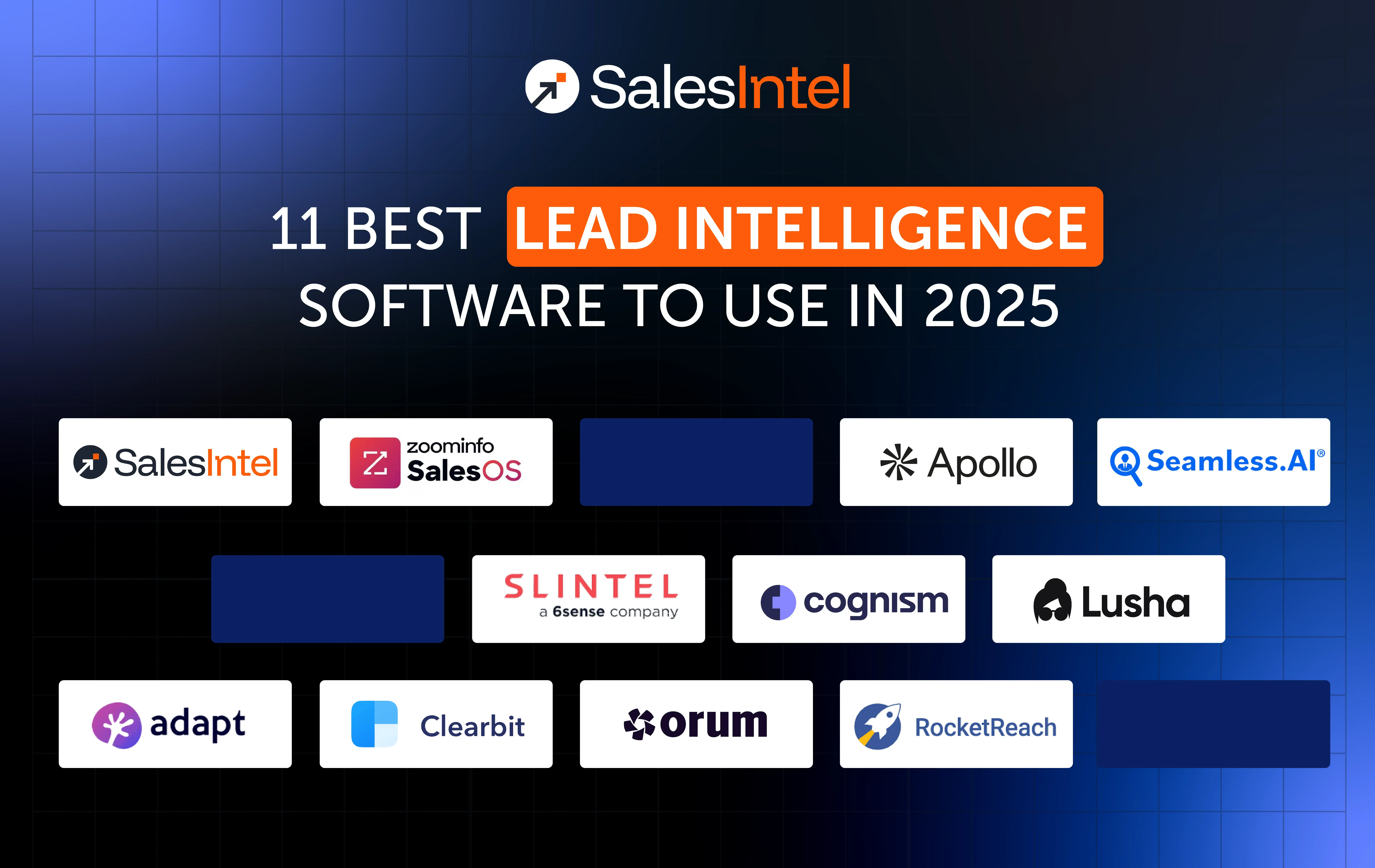In B2B sales, time is money, and chasing the wrong contact data can cost you both. That’s why tools like RocketReach have become go-to solutions for professionals looking to find verified emails, phone numbers, and social profiles in seconds. But with so many tools out there, and budgets tighter than ever, understanding exactly what you’re paying for is no longer optional, it’s essential.
Whether you’re a current SalesIntel user exploring your options or simply comparing lead intelligence platforms, this guide breaks down RocketReach’s pricing plans for 2025 with complete clarity. From features and limitations to a side-by-side comparison with SalesIntel, you’ll walk away with the insights you need to make a smarter investment in your sales tech stack.
Understanding RocketReach: More Than Just an Email Finder
Before diving into the numbers, it’s important to grasp what RocketReach offers. At its core, RocketReach is a lead intelligence and sales intelligence platform. It provides a vast database of professional profiles, including verified email addresses, phone numbers, and social media links. But it goes beyond simple contact lookup, offering features designed to streamline prospecting, outreach, and lead generation efforts.
Key features that make RocketReach a popular choice include:
- Extensive Database: RocketReach boasts a massive database of over 700 million professional profiles and 60 million companies, making it a powerful resource for finding contacts across diverse industries and roles.
- Advanced Search Filters: Users can leverage over 100 filters, including job title, industry, location, company size, technographics, and skills, to pinpoint their ideal prospects with precision.
- Email & Phone Lookup: The platform specializes in providing verified personal and professional email addresses and direct dial phone numbers.
- Chrome Extension: A convenient browser extension allows for quick contact lookups directly from LinkedIn, Sales Navigator, company websites, and other professional platforms.
- Integrations: RocketReach integrates with popular CRMs (like Salesforce, HubSpot, Pipedrive), sales engagement platforms (Outreach.io, Salesloft), and other tools via Zapier, streamlining workflows.
- Bulk Lookups & Exports: Users can process large lists of prospects and export data for efficient list building and data management.
- Intent Data (Higher Tiers): For more advanced users, RocketReach offers insights into buyer intent, helping identify prospects actively researching solutions.
- AI-Powered Recommendations: The platform uses AI to suggest relevant prospects based on user behavior and search history.
- Org Charts & Company Trends: Higher-tier plans may offer organizational charts and company news/trends for deeper account understanding.
These features collectively aim to reduce research time, improve data accuracy (though this can be a point of contention for some users), and ultimately accelerate the sales cycle.
RocketReach Pricing & Plans 2025: A Detailed Breakdown
RocketReach operates on a credit/lookup system and offers both individual and team plans. All paid plans incentivize annual billing with lower per-month costs.
Individual Plans
These plans are designed for solo users and small teams.
| Plan | Monthly Cost (Monthly Billing) | Annual Cost (Billed Annually) | Annual Lookups (Exports) | Key Features |
|---|---|---|---|---|
| Essentials | $69/month | $399/year (~$33.25/mo) | 1,200 (Email Only) | Personal & Professional Emails, Browser Extension. |
| Pro | $119/month | $899/year (~$74.92/mo) | 3,600 (Email & Phone) | Includes Essentials features, plus Mobile & Direct Phone Numbers, Bulk Lookups, CRM integrations. |
| Ultimate | $209/month | $2,099/year (~$174.92/mo) | 10,000 (Email & Phone) | Includes Pro features, plus Full API Access, Salesforce Integration, Organizational Charts, Intent Data, and advanced automation. |
Key Feature Notes for Individual Plans:
- Essentials is Email-Only.
- Pro and Ultimate include both Email & Phone lookups.
- Exports are consumed when downloading data (CSV) or pushing it to a CRM/API.
Team & Custom Plans
These plans are designed for larger organizations and are often billed annually only.
| Plan | Annual Price (Starts At) | Lookups (Per User/Year) | Key Features |
|---|---|---|---|
| Team Pro | Approx. $996 per user/year (~$83/user/month) | 3,600 (Pooled Lookups) | Shared credit pool, collaboration tools, Email & Phone access, integrations. |
| Team Ultimate | Approx. $2,480 per user/year (~$207/user/month) | 10,000 (Pooled Lookups) | All Team Pro features, plus advanced integrations, full API access, and centralized administration. |
| Custom / Enterprise | Starts at $6,000 annually | Custom/Unlimited | Pooled credits, custom packages, dedicated account manager, higher API limits, customizable security (e.g., SSO). |
Important Considerations
- Free Access: It is free to create an account and receive 5 free lookups (no credit card required).
- Lookups vs. Exports: A lookup is used if a verified email or phone is found; otherwise, the lookup is generally refunded. Exports are consumed when the contact data is downloaded or pushed to another tool.
- Overage: If you run out of lookups, additional lookups can be enabled and are typically billed at the end of the month, ranging from $0.30 to $0.45 per lookup.
- Cancellation: You can cancel your subscription anytime, but the cancellation takes effect at the end of the pre-paid term (month or year).
RocketReach Features: What Do You Get for Your Money?
Beyond the pricing, the value proposition of RocketReach lies in its features. Here’s a deeper look at what you can expect across different tiers:
- Data Accuracy & Verification:
RocketReach prides itself on a large database, but like any data provider, accuracy can sometimes be a concern. It uses a combination of public data sources and proprietary algorithms to compile and verify information. While many users report high accuracy, some instances of outdated or incorrect data may occur. SalesIntel, for instance, often emphasizes its human-verified data for higher accuracy. - Search and Filtering Capabilities:
This is where RocketReach truly shines. The sheer number of filters allows for highly granular targeting, enabling sales reps to quickly identify prospects that match their ideal customer profile (ICP). - CRM and Outreach Integrations:
Seamless integration with popular sales tools is a major benefit. This allows for direct export of leads, syncing contact data, and often initiating outreach campaigns directly from the platform, reducing manual data entry and improving workflow efficiency. - User Interface and Ease of Use:
RocketReach is generally considered user-friendly with an intuitive interface, making it easy for sales and marketing professionals to navigate and find the information they need quickly. The Chrome extension is particularly praised for its convenience. - Competitive Intelligence and Insights:
Features like company trends, technographics, and intent data (in higher plans) provide valuable context for understanding prospects and tailoring outreach messages. This allows sales teams to move beyond generic outreach and craft more personalized and effective communications. - Scalability:
With individual and team plans, RocketReach can scale with your business as your prospecting needs grow. The custom enterprise options cater to even the largest organizations.
Is RocketReach Right for You in 2025?
Deciding if RocketReach aligns with your sales strategy involves weighing its pricing against its features and your specific organizational needs.
RocketReach might be a good fit if:
- You need a broad, accessible database: Its vast coverage is excellent for finding contacts across many industries and roles.
- Your primary need is quick email and phone lookups: The platform is highly efficient for rapidly acquiring contact details.
- You value ease of use and a straightforward interface: RocketReach is known for its user-friendly design.
- You’re willing to commit to annual billing for cost savings: The significant discounts for annual subscriptions make it more appealing.
- You have a flexible budget that can accommodate its tiers: As you scale up, the costs can increase, so ensure it aligns with your financial planning.
However, you might want to consider alternatives or supplement RocketReach if:
- You require absolute, uncompromising data accuracy: While good, some users find that human-verified data from providers like SalesIntel offers a higher degree of reliability.
- Your outreach heavily relies on deep buyer intent and technographic data: While RocketReach offers this, other platforms might provide more granular or sophisticated intent signals.
- You need a highly customized or enterprise-grade solution from the outset: While RocketReach has custom plans, some competitors specialize more in complex enterprise environments.
- You are a current SalesIntel user who prioritizes their existing suite of human-verified data and advanced features.
RocketReach vs. SalesIntel: A Head-to-Head Comparison for Sales Professionals
When evaluating sales intelligence platforms, it’s essential to compare leading solutions like RocketReach and SalesIntel. While both aim to empower sales teams with crucial data, their core strengths and approaches differ.
| Feature/Aspect | RocketReach | SalesIntel |
| Data Verification | Primarily relies on proprietary algorithms and aggregation of public sources. | Strong emphasis on human verification (Research On-Demand) for higher accuracy, re-verified every 90 days. |
| Database Size | Very large (700M+ professionals, 60M+ companies) with global coverage. | Extensive, with a focus on quality and depth, particularly strong in the US market. |
| Data Quality/Accuracy | Generally high, but due to automated collection, occasional outdated data may occur. | Known for industry-leading accuracy (often cited at 95%+) by combining AI + human verification. |
| Contact Types | Provides a wide range of verified email addresses (personal & professional) and direct dials. | Offers a high volume of direct dial phone numbers and human-verified emails. |
| Pricing Model | Credit-based with annual/monthly subscriptions, significant discounts for annual billing. | Subscription-based, often with custom quotes, sometimes perceived as higher-tier. |
| Key Strength | Speed, vast database for broad prospecting, and ease of use for quick lookups. | High data accuracy, robust and granular intent data, deep company insights, and Research On-Demand. |
| Intent Data | Available in higher tiers (e.g., Foundry intent data). | A core offering with comprehensive intent data, often powered by Bombora. |
| Technographics | Available in higher tiers. | Strong technographic data for identifying technologies used by companies. |
| CRM Integrations | Good range including Salesforce, HubSpot, Outreach, Salesloft, and Zapier. | Broad integration opportunities, often more extensive for enterprise CRMs and sales engagement platforms. |
| Browser Extension | Highly rated for ease of use on LinkedIn, company websites, etc. | Effective extension for quick lookups and data enrichment. |
| Support | Offers various support channels, including priority support for higher tiers. | Often provides dedicated account management and more hands-on support. |
| Target Audience | Broad appeal for sales, recruiting, and marketing across company sizes, good for high-volume prospecting. | Often favored by mid-market to enterprise for deeply vetted data and strategic account-based sales. |
For SalesIntel users, the key differentiator often lies in data accuracy and the depth of insights. While RocketReach offers a wide net and excels at rapid, high-volume prospecting, SalesIntel’s commitment to human-verified data and sophisticated intent signals can be a significant advantage for teams where data quality is absolutely non-negotiable and where a deeper understanding of buyer behavior is critical for highly targeted campaigns.
SalesIntel also tends to offer more comprehensive firmographic and technographic data, alongside its unique Research On-Demand service, which allows users to request specific contact or company data that isn’t already in their database. This level of verification and customization often positions SalesIntel as a premium solution for revenue teams focused on precision and actionable intelligence.
Conclusion
RocketReach pricing for 2025 reflects a tiered approach designed to cater to various business needs, from individual professionals to large sales organizations. Its strengths lie in its expansive database, user-friendly interface, and efficient contact lookup capabilities. While the “unlimited” lookups for annual plans can be attractive, it’s crucial to understand the nuances of their credit system and any fair usage policies.
For SalesIntel users, or those considering a switch, evaluating RocketReach comes down to a trade-off between sheer volume and immediate access versus the depth of human-verified data and advanced intelligence that SalesIntel often emphasizes. By thoroughly assessing your team’s specific requirements, budget, and desired level of data accuracy and insights, you can make an informed decision on whether RocketReach is the ideal prospecting tool to fuel your growth in 2025 and beyond.
FAQs
Does RocketReach offer API access?
Yes, full API access is included with the Ultimate Plan ($2,099/year) and above. It allows programmatic data retrieval for custom integrations and high-volume data needs.
Can RocketReach pricing be negotiated?
Standard individual plans have fixed annual pricing. Customers needing high-volume usage, specialized features, or administrative controls should opt for the Custom/Enterprise Plan (starting at $6,000 annually) where pricing and features are negotiable.
Beyond the subscription fee, the main additional cost is for “Additional Lookups” (overage charges) if you exceed your plan’s annual credit limit. These overage lookups are billed at the end of the month, ranging from $0.30 to $0.45 per lookup.
Is RocketReach free to use?
RocketReach is free to create an account and use the platform’s search functionality. It offers a limited free tier with 5 free lookups to test the data quality before requiring an upgrade to a paid plan.
How does RocketReach’s credit system work?
RocketReach operates on an annual lookup-based credit system. A credit is consumed only when a verified email or phone number is successfully revealed. Unused lookups do not roll over to the next annual term.
What are the features and cost of RocketReach’s Essentials Plan?
The Essentials Plan costs $399/year (approx. $33.25/month) and includes 1,200 annual lookups focused on Email-Only contact data. It provides basic search and the Chrome extension, ideal for individual email prospecting.
What are the features and cost of RocketReach’s Pro Plan?
The Pro Plan costs $899/year (approx. $74.92/month) and includes 3,600 annual lookups. It adds crucial Mobile and Direct Dial Phone Numbers, company searches, bulk lookups, and integrations with standard sales tools.
What are the features and cost of RocketReach’s Ultimate Plan?
The Ultimate Plan costs $2,099/year (approx. $174.92/month) and delivers 10,000 annual lookups. It includes everything in Pro, plus Full API Access, Salesforce integration, organizational charts, and advanced automation features.
How much does RocketReach cost per month?
The effective monthly cost for annual billing starts at $33.25/month for Essentials, moving to $74.92/month for Pro, and $174.92/month for Ultimate. Monthly billing is available at a higher rate.
How does RocketReach compare to competitors?
RocketReach excels in database breadth (700M+ profiles) but relies heavily on algorithmic data; SalesIntel provides superior data accuracy (95% vs. 85-90%), human-verified contacts, unlimited access models, and research-on-demand services.




